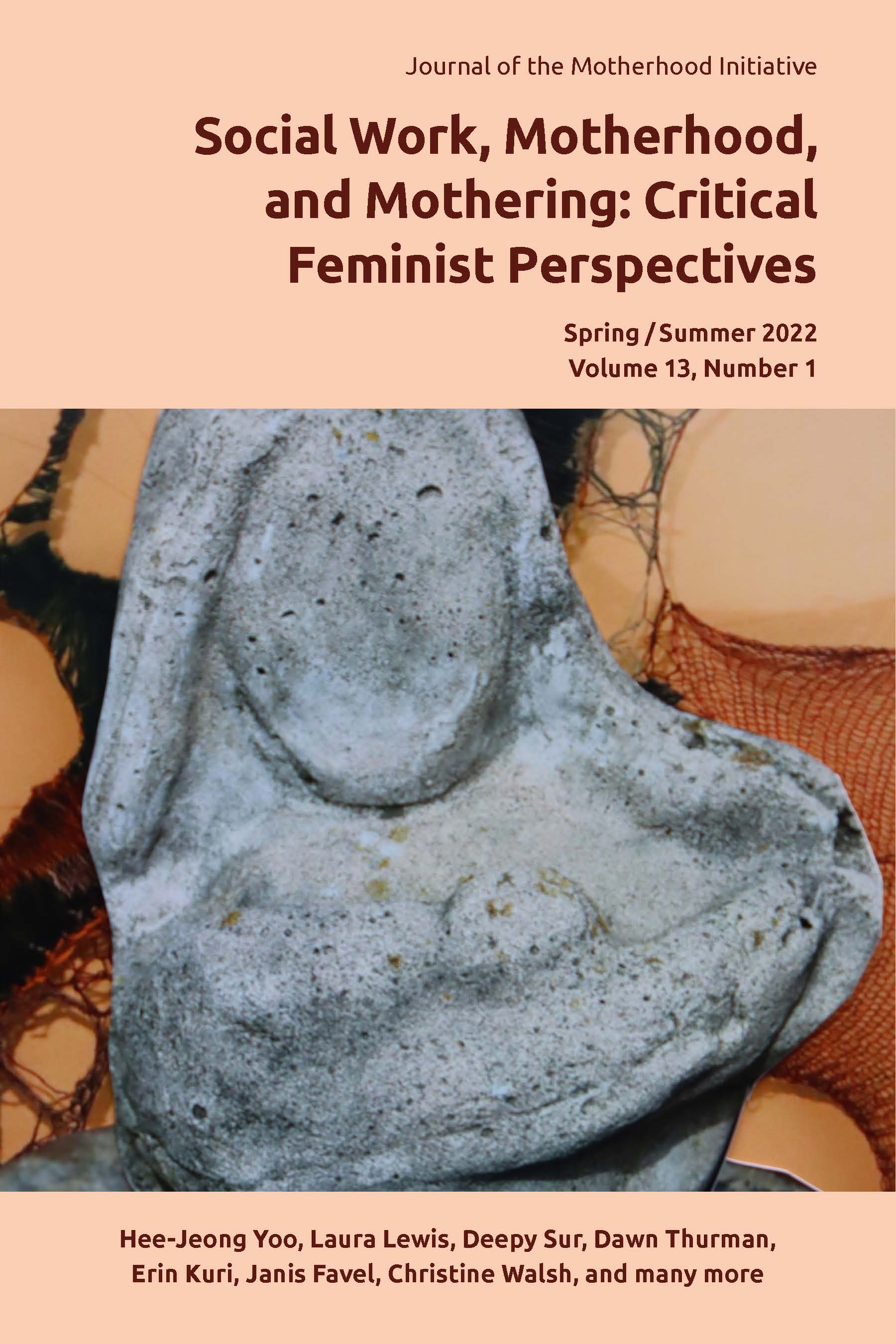“Good” Mothers, “Risky” Mothers, and Children’s Health
Abstract
Within a North American context, promoting and maintaining individual health and wellness have become a central focus and social expectation over the last several decades. Various systems and institutions that comprise a mother’s social network—including family, friends, school, social media, healthcare and social services, food, and recreation spaces—all produce daily health messages that encourage the surveillance and practice of healthy lifestyle behaviours. Health promotion directed at families within these spaces often target and question everyday mothering practices, such as food preparation, physical activity, screen time, sleep, mental health, and overall parenting. This article seeks to examine the dominant biomedical discourses that have constructed categories of “good” and “risky” mothering practices within the area of child health. Weaving together my individual experience and knowledge as a Canadian paediatric healthcare social worker and mother, I will draw on feminist poststructuralism and maternal theory to explore how everyday mothering practices are often compared to ideal and normative mothering discourses that position mothers as individually responsible and blamed for their children’s health outcomes. The article also explores the tool of self-reflexivity, which can offer social workers and service providers working alongside mothers the opportunity to consider new ways they might resist and challenge the truths and assumptions of so-called “good”mothering across social systems and reimagine new systems of support for children, mothers, and families.
Downloads
Published
How to Cite
Issue
Section
License
All intellectual property in relation to material included on this site belongs to the Motherhood Initiative for Research and Community Involvement (MIRCI). All material on this site is protected by Canadian and international copyright and other intellectual property laws. Users may not do anything which interferes with or breaches those laws or the intellectual property rights in the material. All materials on the Motherhood Initiative for Research and Community Involvement (MIRCI) are copyrighted and all rights are reserved. Any reproduction, modification, publication, transmission, transfer, sale, distribution, display or exploitation of the information, in any form or by any means, or its storage in a retrieval system, whether in whole or in part, without the express written permission of the Motherhood Initiative for Research and Community Involvement (MIRCI) is prohibited. Please contact us for permission to reproduce any of our materials. This site may include third party content which is subject to that third party's terms and conditions of use.


